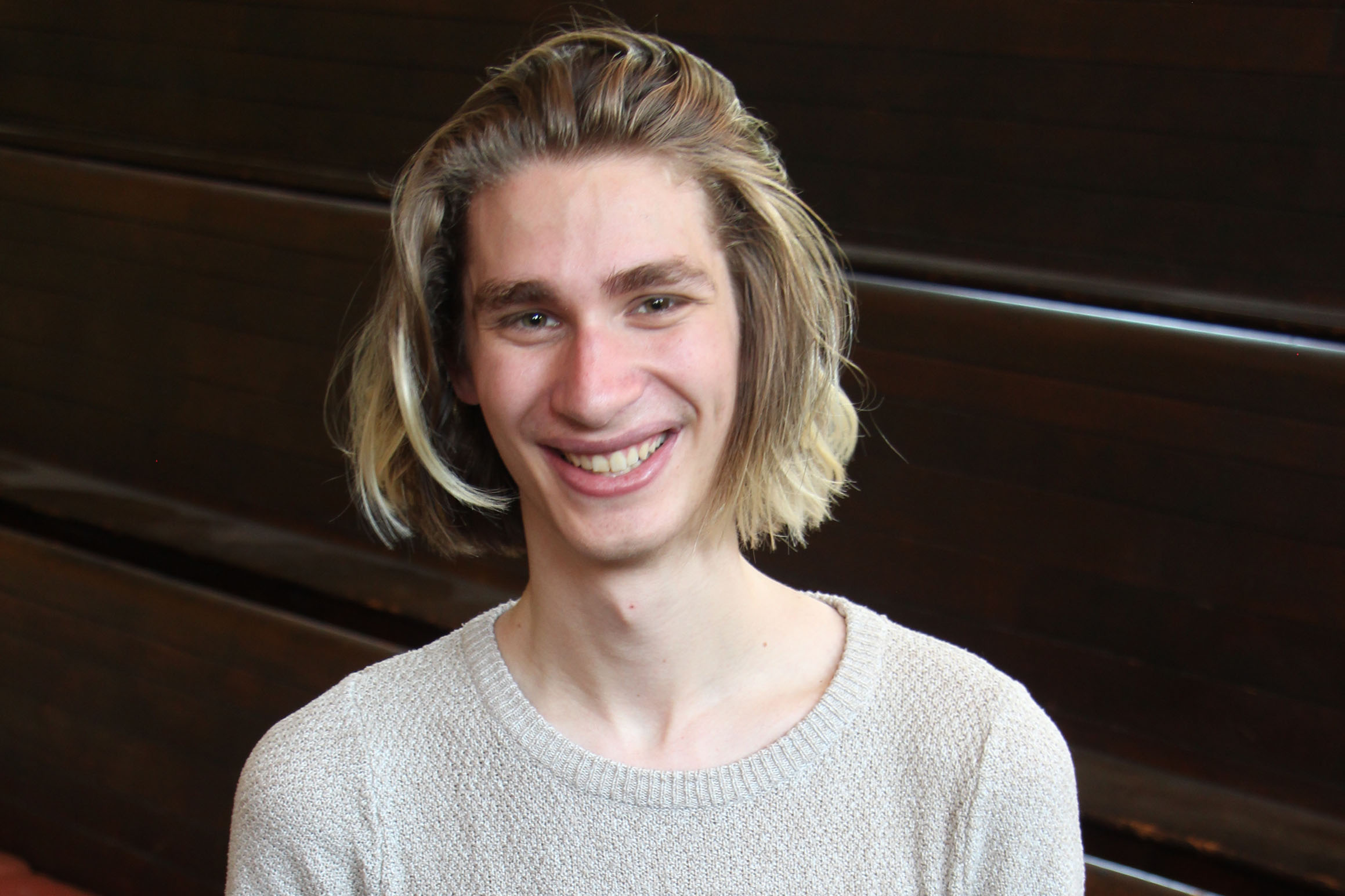
Photo: Yazeed Kamaldien/AFSC
If Swarthmore College student Lucas Meyer-Lee has learned one thing from his Emerging Leaders for Liberation project, it’s just how dehumanizing a prison sentence can be.
To help people understand what life is like for people living behind bars, Lucas wanted to deepen the work of Prison Radio at the nearby SCI Chester prison facility, creating connections between students and people incarcerated there. If successful, the work would give a platform to incarcerated voices, deepening relationships between those on the inside and the outside. Having previously met people like Kenjuan Congo, Jr., who is incarcerated at SCI Chester, Lucas understood that people at the facility would have plenty of stories, poetry, and political commentary to share, if he could help to get it out.
The concept was simple: the students would record the stories and perspectives of incarcerated people, then share them through existing platforms, building on Prison Radio’s existing model. However, Lucas knew that, for it to work, he needed to develop trusting and respectful relationships with people locked up at SCI Chester.
He has faced administrative barriers every step of the way. The phone systems break. Individuals are transferred between facilities or moved between cell blocks, disrupting schedules and conversations already underway between people in SCI and Lucas. Even with incredible effort by his partner on the inside, Kenjuan, the project has been slow-going.
“Growing up a Quaker, I’ve always been opposed to U.S. mass incarceration,” said Lucas. “But now, seeing the prison-industrial complex up close, I realize all the ways it isolates people and makes them jump through hoops. I think about how frustrated I feel, struggling to maintain contact. Then I think about their families and loved ones, and how hard they must be working to stay in touch. It’s heartbreaking.”
Still, Lucas is undeterred. Inspired by some of the powerful conversations he’s already had, and with Kenjuan’s tireless work, Lucas is searching for new ways to help these individuals get their stories out. In some instances, he has used email to gather written statements; in others, he records conversations piecemeal and has individuals respond to each other’s thoughts serially. The complications have even spurred a bit of innovation: to broaden the conversation, and to show interviewees that people are paying attention and value their perspectives, he now plans to have listeners email questions.
Strong allies have facilitated Lucas’s progress and helped him navigate the system. Prison Radio and War News Radio help people behind bars share their stories with the world; they’ve lent Lucas audio equipment, counseled him on the project, and put out audio on it. Knowing that these organizations, AFSC, and Kenjuan are standing with him has helped Lucas stay committed to the project, even in the face of all the roadblocks.
As the project grows, Lucas is excited to grow and evolve beyond Swarthmore. “Students have been integral to so many movements for change throughout history, but we have to move beyond campus to engage the broader community.” Lucas knows that it won’t be easy, but he’s ready to put in the work.